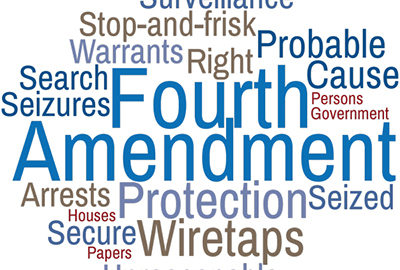FRCP Rule 16: Government’s Misrepresentation Prevents Motion To Suppress And Mandates New Trial
United States of America v. Vinas
2018 WL6381164
United States Court of Appeals – 2nd Circuit
Decided on December 6th, 2018
Federal Appeals Lawyer in New York, Connecticut, Vermont
ISSUE
Whether the defendant is entitled to a new trial where the Government inaccurately portrayed how a pre-arrest statement was obtained from the defendant where the statement was made to four federal officers at the airport in a search room prior to defendant being Mirandized and the misrepresentation prevented the defendant from making a motion to suppress the statement pursuant to Federal Rules of Criminal Procedure Rule 16.
HOLDING
The Courts held that a new trial is warranted because the Government inaccurately portrayed how a pre-arrest statement was obtained denying defendant the opportunity to make a suppression motion. Rule16(a)(1)(A) requires the government to disclose the substance not only of the incriminating post-arrest oral statements which it intends to use at trial, but also the substance of the defendant’s response to any Miranda warnings which preceded the statements.
FACTS OF THE CASE
On November 15, 2015 defendantFrancis Patino Vinas arrived at JFK airport after a five-day trip to the Dominican Republic. He approachedCustoms Control Point and present his suitcase and backpack for inspection where he was selected for further inspection and was referred to the BaggageInspection Area, where United States Customs and Border Protection (“CBP”) officer Francisco Santos inspected the contents of his suitcase.
Officer Santos took Vinas into a private room (the“Search Room”) where he and three other armed CBP officers asked Vinas where he had gotten the bottle of Mamajuana. Vinas replied that he had bought the bottle at a store outside the airport in the Dominican Republic. Officer Santos discovered further evidence of tampering and broke the bottom on the bottle, spilling the contents of the bottle into the bag. Various “blue oblong objects” were observed blue objects in the bag and cut it open, revealing a white powdery substance that was later revealed to be cocaine.
Vinas was placed under arrest. Prior to being Mirandized and during the initial inspection of his luggage by U.S. Customs and Border Protection officers, Vinas stated, in sum and substance, that he purchased the bottle of “Mamajuana” at a store in theDominican Republic. He was later advised of his Miranda Rights and he waived those rights.
Vinas was indicted for importing cocaine. The Government produced discovery pursuant to Rule 16 of the Federal Rules of Criminal Procedure, which included Vinas’ signed Miranda waiver and a document describing Vinas’ statements that he had been given the bottle of Mamajuana by Chelo.
Prior to trial, the Government made a supplemental production of Rule 16 material. The Government’s disclosure stated: During the initial inspection of his luggage by U.S. Customs and Border Protection officers, Vinas stated, in sum and substance, that he purchased the bottle of “Mamajuana” at a store in the Dominican Republic. The defense did not move to suppress this statement before trial because they were unaware that the statement was given pre-Miranda.
The only issue at trial was whether Vinas knew that the Mamajuana bottle contained cocaine. During the Government’s opening statement, they described the expected testimony given by Officer Santos which stated that after Vinas was taken to “a private search room,” he claimed to have purchased the Mamajuana bottle at a store in the Dominican Republic (the “Store Statement”). Defense counsel immediately notified the district court that, until the Government’s opening, they were unaware that Vinas purportedly made the Store Statement in the Search Room in the presence of four armed CBP officers, prior to receiving Miranda warnings.
Defense counsel argued that he would have moved before trial to suppress the Store Statement if he had known about the factual context. Despite this, the district court allowed the Government to proceed with Officer Santos’ direct testimony, the aforementioned Store Statement and simply assured the defense counsel that they would have the opportunity to make any necessary motion. During the initial and rebuttal summations, the Government mentioned the Store Statement Vinas made in the Search Room nine times and made it central to their argument that Venus was aware he was importing cocaine.
The jury convicted Vinas on both counts of the Indictment. After his conviction, he moved for a new trial, arguing that the Government’s Rule 16 disclosure regarding Vinas’ Store Statement misled the defense into forgoing a pretrial motion to suppress that statement. The district court denied Vinas’ motion.
COURT’S ANALYSIS
The Courts held that a new trial is warranted because the Government inaccurately portrayed how a pre-arrest statement was obtained by federal authorities in violation of Rule 16 (a)(1)(A)therefore denying the defendant the opportunity to make a suppression motion. Rule 16(a)(1)(A) states:
Upon a defendant’s request, the government must disclose to the defendant the substance of any relevant oral statement made by the defendant, before or after arrest, in response to interrogation by a person that defendant knew was a government agent if the government intends to use the statement at trial. Fed. R. Crim. P. 16(a)(1)(A).
The district court was in error when they concluded that the Government complied with the requirements of Rule 16 because they relied on the reasoning that this Court rejected in United States v. McElroy, 697 F.2d 459(2d Cir. 1982).
In McElroy, before trial, the Government responded to the defendant’s request for Rule 16 materials by producing a post-arrest statement by the defendant in which the defendant claimed that he was present at the transaction only out of concern for the safety of an accomplice, which the Government said the defendant “volunteered” to a DEA agent. During the trial, however, it arose that prior to making this statement, the defendant chose to remain silent and meet with an attorney before being questioned further, invoking his Miranda right. Afterward, the defendant initiated a conversation with a DEA agent and was read his Miranda rights a second time which he chose to waive and proceeded to making the inculpatory statement at issue. The Court held that the Government violated Rule 16(a)(1)(A) and reversed the defendant’s conviction because they failed to disclose the defendant’s initial oral invocation of his Miranda rights.
The Second Circuit rejected the district court’s determination that the Government properly disclosed the Store Statement under Rule 16 since “nothing was concealed,” or “withheld.” because it was established in McElroy that “Rule16(a)(1)(A) requires the government to disclose the substance not only of the incriminating post-arrest oral statements which it intends to use at trial, but also the substance of the defendant’s response to any Miranda warnings which preceded the statements.” 697 F.2d at 464. Like in McElroy, theGovernment’s disclosure in this case offered a precise summary of the defendant’s alleged statement, coupled with a misleading depiction of the circumstances under which the defendant supposedly made it and therefore, misinformed defense counsel about the possible grounds for suppression.

